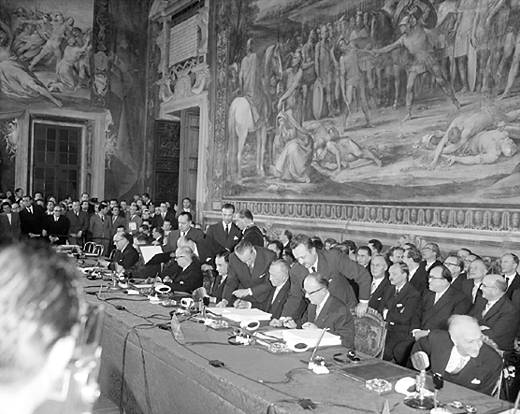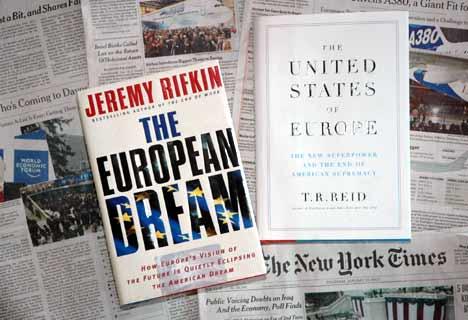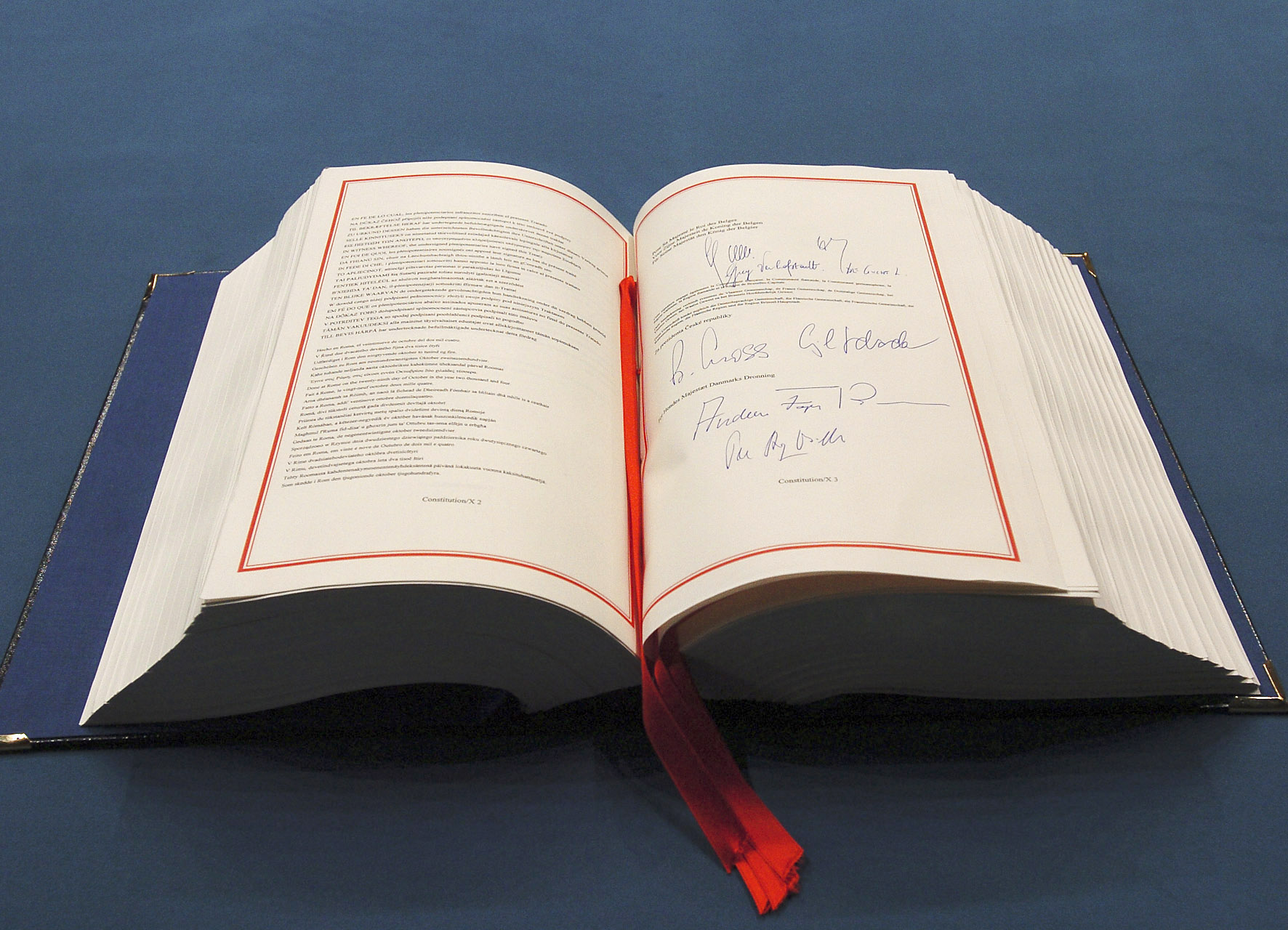
By Otto Spijkers
On the 25th of March, 1957, only twelve years after the end of the Second World War, the Treaty of Rome was signed, the constitutive treaty of the European Economic Community. For videos, pictures etc. of the history of the European Community, click here. The European Community may initially have been established with the realist aim of ensuring better economic cooperation, mainly in order to prevent a Third World War. But it has slowly evolved into a community based not on common interests alone, but also on common values. A big question is whether Europe should promote these values world-wide, and act on them world-wide, or whether it should remain a somewhat exclusive club of rich and like-minded nations.
 In an interesting article in the Dutch newspaper De Volkskrant, Jeremy Rifkin, an American who spent most of his life in Europe, compares the American Dream with the European Dream. The American Dream is basically to be free. The community as a whole benefits from allowing individuals to be free and autonomous, and should thus let individuals realize their own particular dreams all by themselves. Although Rifkin does not do so in the article, one may add that American foreign policy is also based on the same dream: all states are free, autonomous and have equal opportunities, at least in theory, to realize their particular ideals in an essentially value-neutral global order.
In an interesting article in the Dutch newspaper De Volkskrant, Jeremy Rifkin, an American who spent most of his life in Europe, compares the American Dream with the European Dream. The American Dream is basically to be free. The community as a whole benefits from allowing individuals to be free and autonomous, and should thus let individuals realize their own particular dreams all by themselves. Although Rifkin does not do so in the article, one may add that American foreign policy is also based on the same dream: all states are free, autonomous and have equal opportunities, at least in theory, to realize their particular ideals in an essentially value-neutral global order.
The European Dream, however, is to have a stable, risk-free life within the community. Europeans strive for a healthy balance between work, pleasure, care for oneself and the other members of the community. Rifkin suggests that the European Community should apply these ideals not to Europe alone, but to the world, and thereby create a ‘global conscience’. The litmus test, says Rifkin, will be Europe’s treatment of immigrants: unless these immigrants are treated humanely, as part of the same ‘family’, Europe can be accused of preaching values that it does not practice world-wide. Interestingly enough, in the same newspaper, Frits Bolkestein, a prominent Dutch politician and European Commissioner (1999-2004), seems to suggest that Europe must indeed remain an exclusive club of like-minded countries, where there’s no place for Turkey, which is ‘too big, too poor, and too different’.
On the 25th of March 2007, the European Union will formally describe its European Dream. In other words: it aims to adopt a declaration of European Values, which will probably come to be known as the ‘Berlin Declaration’ (since it will be adopted in Berlin). I guess I will join many others in the blogosphere and blog about this Declaration on the day it will be adopted. I hope the fiftieth birthday of the European Community will get the attention it deserves, and will not be spoiled by the skepticism that seems to be in fashion nowadays, also in the Netherlands (which is one of the richest countries in the world, with the happiest children in the world; thus there doesn’t seem to be much reason to complain?). The most interesting part of this Declaration, in my view, will be the part on how Europe aims to promote its values world-wide. To finish, I will just cite the part of the European Constitution (rejected in a Dutch referendum) on the role of the European Union in the wider world:

In its relations with the wider world, the Union shall uphold and promote its values and interests. It shall contribute to peace, security, the sustainable development of the Earth, solidarity and mutual respect among peoples, free and fair trade, eradication of poverty and the protection of human rights, in particular the rights of the child, as well as to the strict observance and the development of international law, including respect for the principles of the United Nations Charter.
